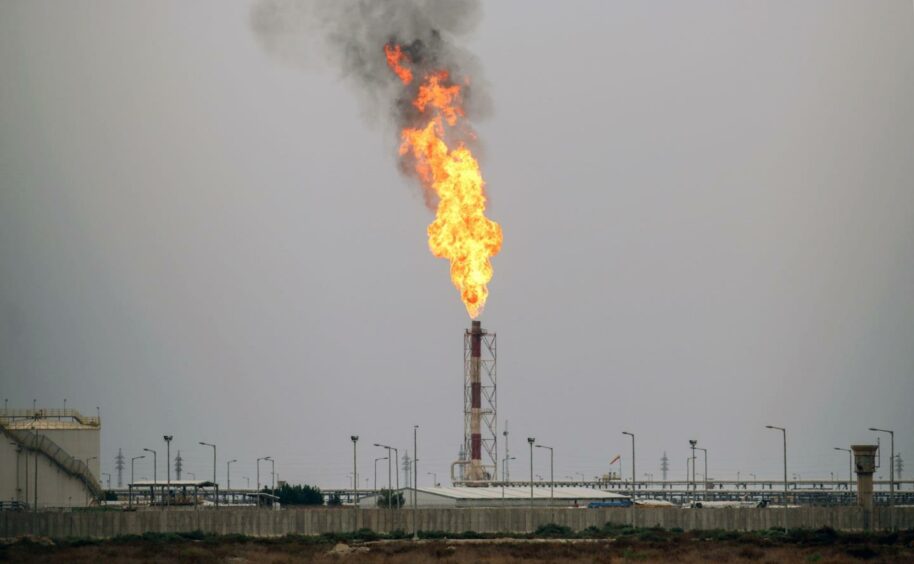
Halliburton denied a claim by Iraq’s oil minister that it’s in talks to buy the stake of ExxonMobil in the huge West Qurna-1 oil field in the south of the country, amid ongoing uncertainty about the future ownership of the asset.
The world’s biggest oil-fracking provider said Monday it isn’t buying any oil fields. While Halliburton at one point held talks about providing services to a potential buyer of the stake in West Qurna 1, those discussions are now over, said Emily Mir, a spokeswoman for the Houston-based contractor.
Iraq appears eager to secure a US buyer for Exxon’s stake in the field, one of the largest oil deposits in the world. While the oil major entered into an agreement to sell the asset to Chinese firms PetroChina Co. and CNOOC Ltd. in January, it has failed to get the Iraqi government’s support for the deal. As a result of the delay, Exxon filed for arbitration against Basra Oil Co. with the International Chamber of Commerce earlier this year.
Oil Minister Ihsan Abdul Jabbar told reporters in Baghdad Sunday that Iraq wants a U.S. partner for Exxon’s stake in the 20 billion-barrel deposit and would step in and buy the field if Halliburton does not. He said a few days ago that Iraqi state company Basra Oil Co. is a potential buyer.
“Basra Oil wants to acquire Exxon stake, but to maintain the balance of partners and market, we support a US partner,” Jabbar said.
While Halliburton has long been one of Exxon’s primary contractors at the field, taking an actual ownership stake would be a rarity for a company focused on mapping, fracking and rehabilitating assets owned by other companies.
Halliburton previously held discussions with American investment firm Twelve Seas about providing services in Iraq, Mir said in an email. “These discussions are typical course of business for us and similar to talks we have with customers everywhere – none of which call on us to buy an oil field,” she said.
Exxon’s Exit
Exxon was among the first Western oil explorers allowed into Iraq in 2010 as the Middle Eastern nation sought to rebuild its energy industry following the fall of Saddam Hussein and years of conflict. Before that, Iraq’s crude bounty had been mostly off limits to foreigners for around 40 years. But the company soured on West Qurna amid tough contractual terms, OPEC supply constraints and ongoing political instability.
Abdul Jabbar also said his ministry is in discussions with Chevron Corp. on the economic model of the contract for its potential investment in the southern city of Nasiriya. He’s expected to sign a deal with the U.S. firm in the first quarter of 2022.
Iraqi National Oil Co. would be Chevron’s partner in the oil exploration investment with a 40% stake in the venture. The U.S. oil giant will conduct exploration work in the city, with an estimated daily output of 600,000 barrels for at least 10 years, the minister said.
Iraq is OPEC’s biggest producer after Saudi Arabia. The minister said he expects OPEC and its allies to increase production by 400,000 barrels next month. He added that the emergence of the omicron coronavirus variant hasn’t had much impact on global oil demand.
OPEC+, led by Saudi Arabia and Russia, decided early this month to raise output in January by that amount. But it kept its meeting “in session,” meaning that the alliance can change its plan rapidly if oil-market conditions deteriorate.